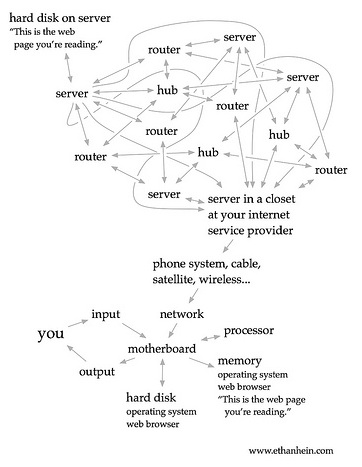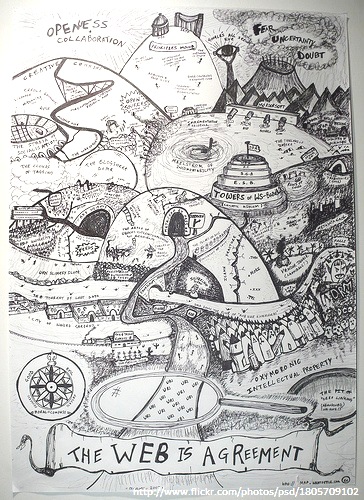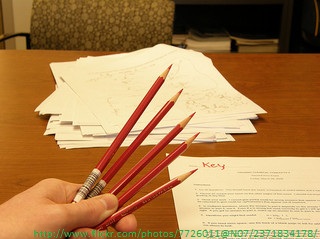First, a couple of definitions:
 |
 |
| A Geek Perspective | A Social Perpective |
Web browsers are powerful and translate the computer code of a web-page into something pretty. To view something on the web, you need to know the specific web address or use a search tool like Google. Think about Google for a minute. The Google search engine is great for finding things on the web, but if it is so good, then why did the company create separate tools to search for images, news, or videos? More on this later.
The Free Web tutorial is all about getting what you need from the free web for academic use. We use Google because we're comfortable with what we know and so far, it has probably been enough. We also know that learning new and better ways of doing things takes time and effort. That said, we need to do a reality check on some standard assumptions:
These assumptions are just that, assumptions, and are not necessarily true for academic work, but one thing that should concern you is...

If you need to locate good information, think about what you are you're looking for first. There might be a tool specifically designed to locate the type of information you need. You'll save time and effort by finding the best tool first and not just going straight to Google.
But before we decide Google isn't what we want, we need to understand what it is, because maybe it is the tool we need. Just what are search engines and what do they do?
Getting resources for an academic assignment through the web? No problem! Getting resources for an academic assignment from Google? Maybe.
Everyone can use a search tool to find something. But is that something:

There is so much wonderful, useful, high-quality, academic-level material available to you on the free web. There is also so much horrible, useless, low-quality, inaccurate junk thrown at you on the free web. Your task is to get to the former while avoiding the latter.

Keys to Success: